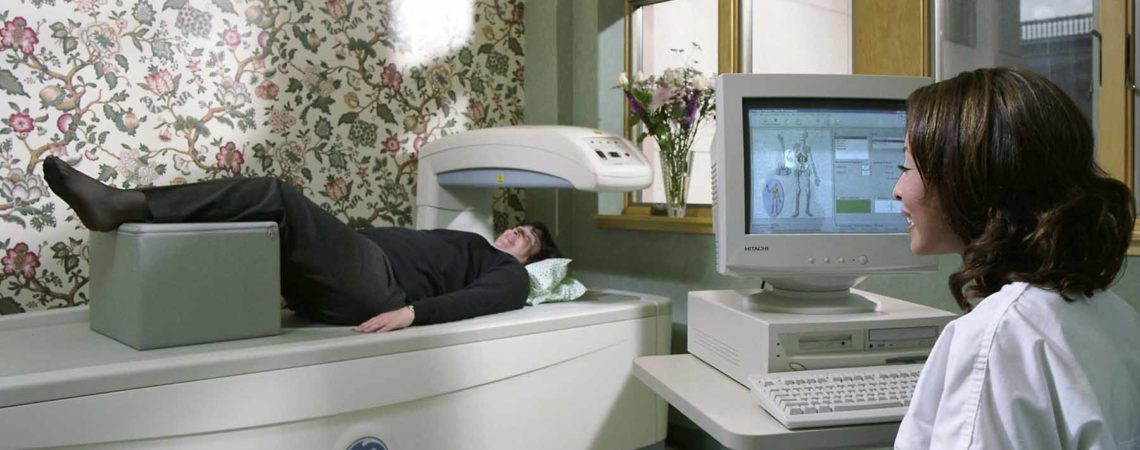What is Osteoporosis?
Osteoporosis, a skeletal disorder characterized by declining bone strength, poses a major threat to women. 54 million Americans have low bone density or osteoporosis, and about one-in-two women over the age of 50 will break a bone due to osteoporosis.
Osteoporosis is largely preventable, and early detection is critical to prevent devastating complications such as hip and vertebral compression fractures.
In keeping with our proactive approach to women’s healthcare, Montclair Breast Center offers testing for osteoporosis. Our new and improved Bone Density Unit performs a non-invasive test for osteoporosis.
Why Should I Consider Bone Density Testing?
Maintaining bone health is a lifelong process and women of all ages should take steps to reduce bone loss. If detected early, osteoporosis can be prevented and treated.
Women reach peak bone mass in their early twenties and then start to lose bone at a rate of 1% per year at age 35. After menopause, this rate increases dramatically. The probability that a 50-year-old Caucasian woman will have a hip fracture during her life is 16%.
The Bone Density Unit takes an x-ray of the hip and spine that measures bone mass. After the test, the team at Montclair Breast Center will discuss individualized approaches with you to increase your bone density, if needed. We recommend a baseline scan when a woman reaches menopause (or perimenopause, if she has risk factors). Screening should continue on a regular basis every 2- 3 years, per doctors recommendations upon results.
Please note: A prescription for a Bone Density test is required.
Calcium rich foods include dairy, sardines, and dark, leafy greens. Vitamin D enhanced your body’s absorption of calcium. Some foods (such as salmon) contain both vitamin D and calcium. Use this chart below to check the calcium level of your favorite foods.
View (and print) a PDF list of Calcium-Rich Foods: Calcium for Lifelong Bone Health





